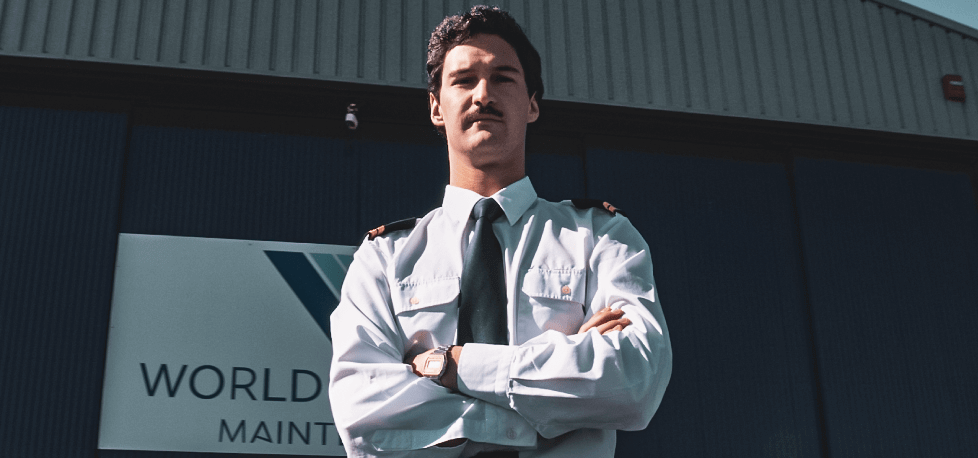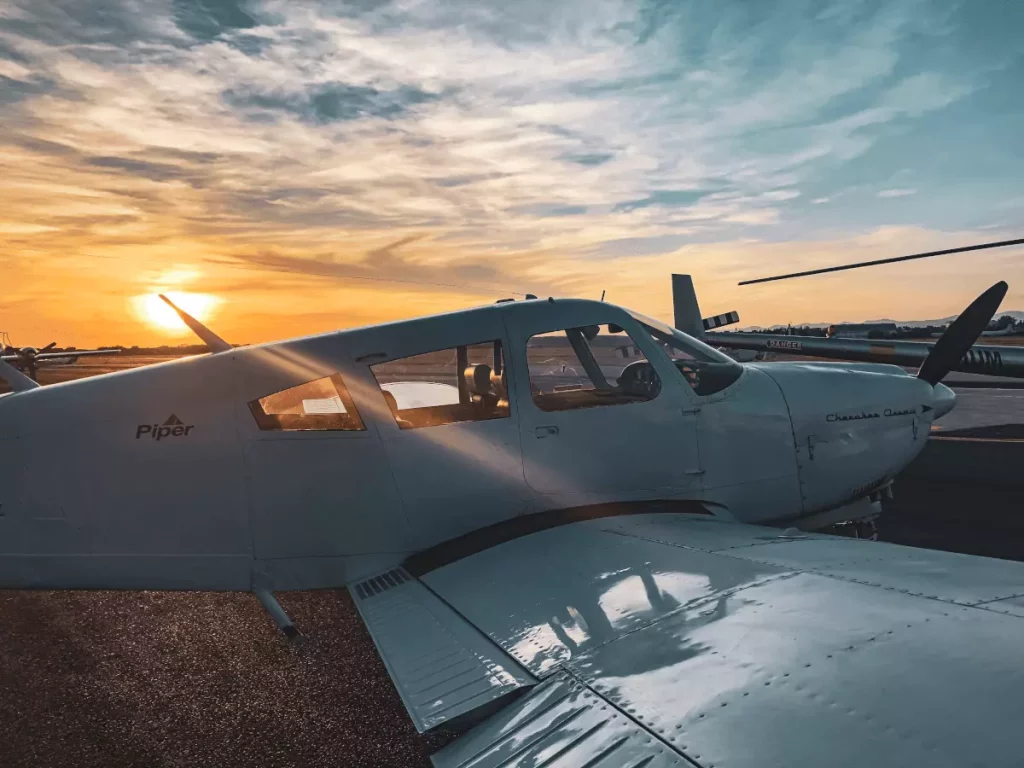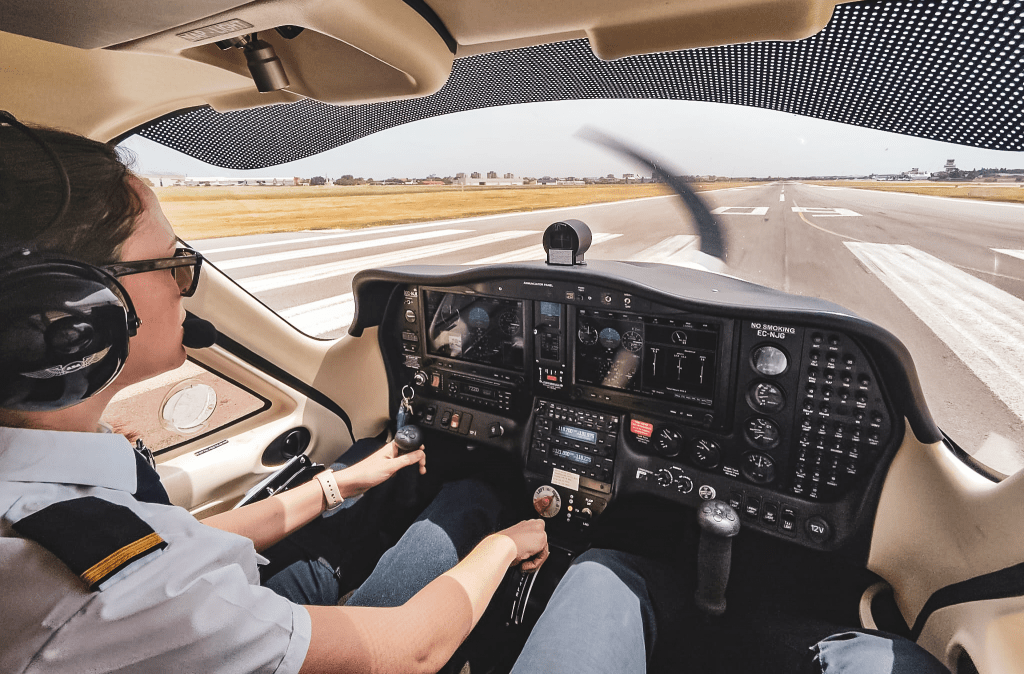How much does it cost to be an Airline Pilot in Spain?
The price of each licence may vary depending on the level or category of training. We explain what influences this and what are the best prices.
When it comes to pursuing a career as an airplane pilot, there are two main paths: to become a light aviation private pilot or to become a commercial pilot. Both options have unique characteristics and responsibilities worth considering:
Being an airplane private pilot is ideal for those who feel aviation as a personal passion rather than a full-time career. Here are some key characteristics:
Becoming a commercial pilot means getting into a professional career dedicated to operate aircrafts in a commercial context:
The profession of an airplane pilot is of great responsibility. For this reason, certain personal skills are required to exercise the authority the pilot licence gives. Some of these skills include:
On the other hand, passing a class 1 medical examination in which conditions that could put at risk the flight operation will be discarded, is an essential requirement when obtaining the commercial pilot license.
To start any pilot course, although the high school qualification is not required, the applicant must have a good mathematics and physics basis together with an appropriate spatial vision that will be very useful both to read maps and flight charts and to identify places and objects in different circumstances and scenarios.
It will also be necessary to demonstrate an-English knowledge at Advanced or C2 level. This level can be improved along with the training development so do not worry if at the beginning of the course it is not the level required.

Within commercial aviation there are different types of pilots such as air cargo pilots, tour pilots, flight pilot-instructors, fumigation pilots, banner tow pilots, fire extinguishers and, of course, airline transport pilots.
However, the commercial pilot licence does not grant the same privileges as the airline transport pilot licence, which is the highest qualification within the various pilot certificates.
Let’s see what type of commercial pilot licenses we can obtain in Spain:
COMMERCIAL AIRCRAFT PILOT LICENCE – CPL (A)
Upon completion of the Commercial Modular Aircraft Pilot Course, CPL (A), the license obtained allows to act as pilot-in-command or co-pilot of any aircraft engaged in operations other than commercial air transport, as well as acting as pilot-in-command in the commercial air transport of any single-pilot aircraft and/or co-pilot in commercial air transport, subject to the specific restrictions under current regulations.
The practical part of the CPL(A) Commercial Pilot Licence Modular Programme consists of 15 real flight hours for students with an instrument flight rating (IR), or 25 hours of real flight time for those who don’t have an instrument rating (IR) yet, which includes all manoeuvres, procedures and requirements required by the regulations.
This program is designed to be developed in phases, following different modules of minor to greater complexity to obtain, once finished, the license of Commercial Pilot CPL(A) and ATPL(A) Frozen.
This qualification allows to act as pilot-in-command (PIC) or co-pilot of any aircraft engaged in operations other than commercial air transport. Likewise, it grants to act as a pilot in command in in commercial air transport operations on any single-pilot certified aircraft as well as co-pilot in commercial airline air transport.

In addition to meeting training and certification requirements, it is crucial to understand the functions as a pilot that each type of license entails. A commercial pilot must demonstrate exceptional skills in air navigation, decision-making in pressure situations and in-depth knowledge of aviation safety regulations. These duties vary by license and type of operation, ranging from commercial passenger flights to cargo operations, ensuring the safety and comfort of everyone on board at all times.
The duration of pilot training will depend on the license you want to obtain. It is not the same a Commercial Pilot License (CPL) as an ATPL (Airline Transport Pilot License) which is the maximum degree within this profession and the starting point to attain the rank of commander.
Thus, before the CPL, the private pilot course (PPL) will have to be carried out with a duration of approximately 5 months. Once this license is obtained you can start the Commercial Pilot course that will take, more or less, 1 month, although it will depend on the student availability and weather conditions during the course.
For the airline transport pilot license, the approximate duration of the course ATPL is 18 to 24 months.
To be able to fly a commercial plane at least 135 flight hours must be performed, in case we go for the integrated course, or 200 hours if we choose the modular option.
In the world of commercial aviation, safety is essential. Commercial pilots must undergo rigorous medical examinations and psychological tests to ensure they are physically and mentally fit to fly in a safe and reliable way.
Pilots must undergo comprehensive medical assessments that include tests for general health, visual and hearing acuity, cardiac and pulmonary function, among other critical aspects. These examinations not only ensure that pilots meet the required health standards, but also identify any conditions that may affect their ability to fly.
It is essential that pilots do not operate under the influence of substances which may compromise their judgement and skills. Drug and alcohol testing is an integral part of these exams, ensuring a safe flying environment for aircrew and passengers alike.
In addition to physical health tests, psychological examinations are also required to asses the pilot emotional stability as well as his/her ability to handle stress and decision-making under pressure. Such assessments are crucial to ensure pilots can deal with complex situations calmly and effectively any time during the flight operation.
Medical examinations and psychological tests are not just bureaucratic requirements but essential measures to maintain high safety standards in commercial aviation. Complying with these requirements not only ensures the pilot competence, but also protects the lives and well-being of all those involved in the operation of commercial flights.
In short, commercial pilots must master certain technical skills, but also have to undergo continuous assessment in order to ensure that they are in the best condition to fly. This reflects the strong commitment with safety and operational excellence the aviation industry try to keep at all times.
In the field of commercial aviation in Spain, language skills play a crucial role in safety and effective communication between pilots and air traffic controllers. Here we explore the requirements and importance of such competencies:
The career to become a commercial aviation pilot involves a great financial commitment. However, despite the financial effort, it must be noticed that the pilot profession has a good economic projection and a great job future in the mid and long term.
The final cost may vary depending on the mode (modular or integrated) and the school chosen. At this point, it is very important to make a thorough market analysis of the different centers, studying with great care each school offer. Therefore, we ask you not to be guided only by prices. Gather the more information, the better. Talk to students who are currently studying, instructors and/or any reference in terms of flight hours, teaching hours, total fleet, own maintenance, availability to fly, different bases and simulators, among other important aspects that can help you in the comparison you must make.
Another issue to consider is the probable need to perform a certain type rating to be qualified for a job call which will increase the final training cost.
Thus, the approximate price for obtaining an ATPL- Frozen license will depend on the option chosen.
Related post
How much does it cost to be an Airline Pilot in Spain?
The price of each licence may vary depending on the level or category of training. We explain what influences this and what are the best prices.

In Spain, the only mandatory requirements to start training as an airplane pilot are a minimum height of 1.57 cm and be, at least, 17 years old since the minimum age to take the exams is 18 years.
If you do not have a license yet, our course proposal begins with the private pilot course (PPL) to start your pilot career. Once obtained this degree, which enables to fly in private operations, that is, without remuneration, you will be ready for the CPL (Commercial Pilot) course. With this other certificate, you may act as pilot-in-command or co-pilot in operations other than commercial air transport; as pilot-in-command in commercial air transport operations on single-pilot aircraft always subject to the restrictions in force, or as co-pilot in commercial air transport also subject to the restrictions specified in the regulations. The CPL license will serve as a springboard to jump to the ATPL license, airline transport pilot, with which you may work in any airline. Likewise, for students who combine their training with a job, we recommend the ATPL FROZEN program, developed in such a way that provides greater flexibility.
Flying a plane is a task that requires specialized training which can only be acquired at an authorized ATO (Authorized Training Organization) school. These centers are subject to continuous inspections to maintain the approval that allows them to provide this training. Such supervision affects everything related: from management, operations or training manuals to facilities (classrooms, simulators) fleet, etc, certifying that all requirements established by AESA (State Aviation Safety Agency) are met so to continue their activity. Only in these institutions approved by the competent authority will you find the training that guarantees you the ability to prove knowledge before it.
For all this, choosing the right center that provides you with excellent preparation to become the pilot you want to be, is crucial.
At WA Flight Academy we offer a wide range of courses given in our modern facilities which meet all characteristics required by AESA to authorize instruction, with state-of-the-art aircrafts suitable for each course together with our own simulators and a team of highly qualified instructors who will help and guide you throughout your training process.
If you still have any doubts, contact us! We will be happy to help you.
You will be up to date with the news at World Aviation Group.
This website uses cookies so that we can provide you with the best user experience possible. Cookie information is stored in your browser and performs functions such as recognising you when you return to our website and helping our team to understand which sections of the website you find most interesting and useful.
Strictly Necessary Cookie should be enabled at all times so that we can save your preferences for cookie settings.
If you disable this cookie, we will not be able to save your preferences. This means that every time you visit this website you will need to enable or disable cookies again.
This website uses Google Analytics to collect anonymous information such as the number of visitors to the site, and the most popular pages.
Keeping this cookie enabled helps us to improve our website.
Please enable Strictly Necessary Cookies first so that we can save your preferences!